- Home
- Wilkie Collins
The Legacy of Cain Page 7
The Legacy of Cain Read online
Page 7
him, after what Mrs. Staveley has told me.
Such a sad story, in some respects. Mother dead; no brothers or sisters. Only
the father left; he lives a dismal life on a lonely stormy coast. Not a severe
old gentleman, for all that. His reasons for taking to retirement are reasons
(so Mrs. Staveley says) which nobody knows. He buries himself among his books,
in an immense library; and he appears to like it. His son has not been brought
up. like other young men, at school and college. He is a great scholar, educated
at home by his father. To hear this account of his learning depressed me. It
seemed to put such a distance between us. I asked Mrs. Staveley if he thought me
ignorant. As long as I live I shall remember the reply: "He thinks you
charming."
Any other girl would have been satisfied with this. I am the miserable creature
who is always making mistakes. My stupid curiosity spoiled the charm of Mrs.
Staveley's conversation. And yet it seemed to be a harmless question; I only
said I should like to know what profession Philip belonged to.
Mrs. Staveley answered: "No profession."
I foolishly put a wrong meaning on this. I said: "Is he idle?"
Mrs. Staveley laughed. "My dear, he is an only son--and his father is a rich
man."
That stopped me--at last.
We have enough to live on in comfort at home--no more. Papa has told us himself
that he is not (and can never hope to be) a rich man. This is not the worst of
it. Last year, he refused to marry a young couple, both belonging to our
congregation. This was very unlike his usual kind self. Helena and I asked him
for his reasons. They were reasons that did not take long to give. The young
gentleman's father was a rich man. He had forbidden his son to marry a sweet
girl--because she had no fortune.
I have no fortune. And Philip's father is a rich man.
The best thing I can do is to wipe my pen, and shut up my Journal, and go home
by the next train.
. . . . . . .
I have a great mind to burn my Journal. It tells me that I had better not think
of Philip any more.
On second thoughts, I won't destroy my Journal; I will only put it away. If I
live to be an old woman, it may amuse me to open my book again, and see how
foolish the poor wretch was when she was young.
What is this aching pain in my heart?
I don't remember it at any other time in my life. Is it trouble? How can I
tell?--I have had so little trouble. It must be many years since I was wretched
enough to cry. I don't even understand why I am crying now. My last sorrow, so
far as I can remember, was the toothache. Other girls' mothers comfort them when
they are wretched. If my mother had lived--it's useless to think about that. We
lost her, while I and my sister were too young to understand our misfortune.
I wish I had never seen Philip.
This seems an ungrateful wish. Seeing him at the picture-show was a new
enjoyment. Sitting next to him at dinner was a happiness that I don't recollect
feeling, even when Papa has been most sweet and kind to me. I ought to be
ashamed of myself to confess this. Shall I write to my sister? But how should
she know what is the matter with me, when I don't know it myself? Besides,
Helena is angry; she wrote unkindly to me when she answered my last letter.
There is a dreadful loneliness in this great house at night. I had better say my
prayers, and try to sleep. If it doesn't make me feel happier, it will prevent
me spoiling my Journal by dropping tears on it.
. . . . . . .
What an evening of evenings this has been! Last night it was crying that kept me
awake. To-night I can't sleep for joy.
Philip called on us again to-day. He brought with him tickets for the
performance of an Oratorio. Sacred music is not forbidden music among our
people. Mrs. Staveley and Miss Staveley went to the concert with us. Philip and
I sat next to each other.
My sister is a musician--I am nothing. That sounds bitter; but I don't mean it
so. All I mean is, that I like simple little songs, which I can sing to myself
by remembering the tune. There, my musical enjoyment ends. When voices and
instruments burst out together by hundreds, I feel bewildered. I also get
attacked by fidgets. This last misfortune is sure to overtake me when choruses
are being performed. The unfortunate people employed are made to keep singing
the same words, over and over and over again, till I find it a perfect misery to
listen to them. The choruses were unendurable in the performance to-night. This
is one of them: "Here we are all alone in the wilderness--alone in the
wilderness--in the wilderness alone, alone, alone--here we are in the
wilderness--alone in the wilderness--all all alone in the wilderness," and soon,
till I felt inclined to call for the learned person who writes Oratorios, and
beg him to give the poor music a more generous allowance of words.
Whenever I looked at Philip, I found him looking at me. Perhaps he saw from the
first that the music was wearying music to my ignorant ears. With his usual
delicacy he said nothing for some time. But when he caught me yawning (though I
did my best to hide it, for it looked like being ungrateful for the tickets),
then he could restrain himself no longer. He whispered in my ear:
"You are getting tired of this. And so am I."
"I am trying to like it," I whispered back.
"Don't try," he answered. "Let's talk."
He meant, of course, talk in whispers. We were a good deal annoyed--especially
when the characters were all alone in the wilderness--by bursts of singing and
playing which interrupted us at the most interesting moments. Philip persevered
with a manly firmness. What could I do but follow his example--at a distance?
He said: "Is it really true that your visit to Mrs. Staveley is coming to an
end?"
I answered: "It comes to an end the day after to-morrow."
"Are you sorry to be leaving your friends in London?"
What I might have said if he had made that inquiry a day earlier, when I was the
most miserable creature living, I would rather not try to guess. Being quite
happy as things were, I could honestly tell him I was sorry.
"You can't possibly be as sorry as I am, Eunice. May I call you by your pretty
name?"
"Yes, if you please."
"Eunice!"
"Yes."
"You will leave a blank in my life when you go away--"
There another chorus stopped him, just as I was eager for more. It was such a
delightfully new sensation to hear a young gentleman telling me that I had left
a blank in his life. The next change in the Oratorio brought up a young lady,
singing alone. Some people behind us grumbled at the smallness of her voice. We
thought her voice perfect. It seemed to lend itself so nicely to our whispers.
He said: "Will you help me to think of you while you are away? I want to imagine
what your life is at home. Do you live in a town or in the country?"
I told him the name of our town. When we give a person information, I have
always heard that we ought
to make it complete. So I mentioned our address in
the town. But I was troubled by a doubt. Perhaps he preferred the country. Being
anxious about this, I said: "Would you rather have heard that I live in the
country?"
"Live where you may, Eunice, the place will be a favorite place of mine.
Besides, your town is famous. It has a public attraction which brings visitors
to it."
I made another of those mistakes which no sensible girl, in my position, would
have committed. I asked if he alluded to our new market-place.
He set me right in the sweetest manner: "I alluded to a building hundreds of
years older than your market-place--your beautiful cathedral."
Fancy my not having thought of the cathedral! This is what comes of being a
Congregationalist. If I had belonged to the Church of England, I should have
forgotten the market-place, and remembered the cathedral. Not that I want to
belong to the Church of England. Papa's chapel is good enough for me.
The song sung by the lady with the small voice was so pretty that the audience
encored it. Didn't Philip and I help them! With the sweetest smiles the lady
sang it all over again. The people behind us left the concert.
He said: "Do you know, I take the greatest interest in cathedrals. I propose to
enjoy the privilege and pleasure of seeing your cathedral early next week."
I had only to look at him to see that I was the cathedral. It was no surprise to
hear next that he thought of "paying his respects to Mr. Gracedieu." He begged
me to tell him what sort of reception he might hope to meet with when he called
at our house. I got so excited in doing justice to papa that I quite forgot to
whisper when the next question came. Philip wanted to know if Mr. Gracedieu
disliked strangers. When I answered, "Oh dear, no!" I said it out loud, so that
the people heard me. Cruel, cruel people! They all turned round and stared. One
hideous old woman actually said, "Silence!" Miss Staveley looked disgusted. Even
kind Mrs. Staveley lifted her eyebrows in astonishment.
Philip, dear Philip, protected and composed me.
He held my hand devotedly till the end of the performance. When he put us into
the carriage, I was last. He whispered in my ear: "Expect me next week." Miss
Staveley might be as ill-natured as she pleased, on the way home. It didn't
matter what she said. The Eunice of yesterday might have been mortified and
offended. The Eunice of to-day was indifferent to the sharpest things that could
be said to her.
. . . . . . .
All through yesterday's delightful evening, I never once thought of Philip's
father. When I woke this morning, I remembered that old Mr. Dunboyne was a rich
man. I could eat no breakfast for thinking of the poor girl who was not allowed
to marry her young gentleman, because she had no money.
Mrs. Staveley waited to speak to me till the rest of them had left us together.
I had expected her to notice that I looked dull and dismal. No! her cleverness
got at my secret in quite another way.
She said: "How do you feel after the concert? You must be hard to please indeed
if you were not satisfied with the accompaniments last night."
"The accompaniments of the Oratorio?"
"No, my dear. The accompaniments of Philip."
I suppose I ought to have laughed. In my miserable state of mind, it was not to
be done. I said: "I hope Mr. Dunboyne's father will not hear how kind he was to
me."
Mrs. Staveley asked why.
My bitterness overflowed at my tongue. I said: "Because papa is a poor man."
"And Philip's papa is a rich man," says Mrs. Staveley, putting my own thought
into words for me. "Where do you get these ideas, Eunice? Surely, you are not
allowed to read novels?"
"Oh no!"
"And you have certainly never seen a play?"
"Never."
"Clear your head, child, of the nonsense that has got into it--I can't think
how. Rich Mr. Dunboyne has taught his heir to despise the base act of marrying
for money. He knows that Philip will meet young ladies at my house; and he has
written to me on the subject of his son's choice of a wife. 'Let Philip find
good principles, good temper, and good looks; and I promise beforehand to find
the money.' There is what he says. Are you satisfied with Philip's father, now?"
I jumped up in a state of ecstasy. Just as I had thrown my arms round Mrs.
Staveley's neck, the servant came in with a letter, and handed it to me.
Helena had written again, on this last day of my visit. Her letter was full of
instructions for buying things that she wants, before I leave London. I read on
quietly enough until I came to the postscript. The effect of it on me may be
told in two words: I screamed. Mrs. Staveley was naturally alarmed. "Bad news?"
she asked. Being quite unable to offer an opinion, I read the postscript out
loud, and left her to judge for herself.
This was Helena's news from home:
"I must prepare you for a surprise, before your return. You will find a strange
lady established at home. Don't suppose there is any prospect of her bidding us
good-by, if we only wait long enough. She is already (with father's full
approval) as much a member of the family as we are. You shall form your own
unbiased opinion of her, Eunice. For the present, I say no more."
I asked Mrs. Staveley what she thought of my news from home. She said: "Your
father approves of the lady, my dear. I suppose it's good news."
But Mrs. Staveley did not look as if she believed in the good news, for all
that.
CHAPTER XIV.
HELENA'S DIARY.
TO-DAY I went as usual to the Scripture-class for girls. It was harder work than
ever, teaching without Eunice to help me. Indeed, I felt lonely all day without
my sister. When I got home, I rather hoped that some friend might have come to
see us, and have been asked to stay to tea. The housemaid opened the door to me.
I asked Maria if anybody had called.
"Yes, miss; a lady, to see the master."
"A stranger?"
"Never saw her before, miss, in all my life." I put no more questions. Many
ladies visit my father. They call it consulting the Minister. He advises them in
their troubles, and guides them in their religious difficulties, and so on. They
come and go in a sort of secrecy. So far as I know, they are mostly old maids,
and they waste the Minister's time.
When my father came in to tea, I began to feel some curiosity about the lady who
had called on him. Visitors of that sort, in general, never appear to dwell on
his mind after they have gone away; he sees too many of them, and is too well
accustomed to what they have to say. On this particular evening, however, I
perceived appearances that set me thinking; he looked worried and anxious.
"Has anything happened, father, to vex you?" I said.
"Yes."
"Is the lady concerned in it?"
"What lady, my dear?"
"The lady who called on you while I was out."
"Who told you she had called on me?"
"I asked Maria--"
"That will do, H
elena, for the present."
He drank his tea and went back to his study, instead of staying a while, and
talking pleasantly as usual. My respect submitted to his want of confidence in
me; but my curiosity was in a state of revolt. I sent for Maria, and proceeded
to make my own discoveries, with this result:
No other person had called at the house. Nothing had happened, except the visit
of the mysterious lady. "She looked between young and old. And, oh dear me, she
was certainly not pretty. Not dressed nicely, to my mind; but they do say dress
is a matter of taste."
Try as I might, I could get no more than that out of our stupid young housemaid.
Later in the evening, the cook had occasion to consult me about supper. This was
a person possessing the advantages of age and experience. I asked if she had
seen the lady. The cook's reply promised something new: "I can't say I saw the
lady; but I heard her."
"Do you mean that you heard her speaking?"
"No, miss--crying."
"Where was she crying?"
"In the master's study."
"How did you come to hear her?"
"Am I to understand, miss, that you suspect me of listening?"
Is a lie told by a look as bad as a lie told by words? I looked shocked at the
bare idea of suspecting a respectable person of listening. The cook's sense of
honor was satisfied; she readily explained herself: "I was passing the door,
miss, on my way upstairs."
Here my discoveries came to an end. It was certainly possible that an afflicted
member of my father's congregation might have called on him to be comforted. But
he sees plenty of afflicted ladies, without looking worried and anxious after
they leave him. Still suspecting something out of the ordinary course of events,
I waited hopefully for our next meeting at supper-time. Nothing came of it. My
father left me by myself again, when the meal was over. He is always courteous
to his daughters; and he made an apology: "Excuse me, Helena, I want to think."
. . . . . . .
I went to bed in a vile humor, and slept badly; wondering, in the long wakeful
hours, what new rebuff I should meet with on the next day.
At breakfast this morning I was agreeably surprised. No signs of anxiety showed
themselves in my father's face. Instead of retiring to his study when we rose
from the table, he proposed taking a turn in the garden: "You are looking pale,
Helena, and you will be the better for a little fresh air. Besides, I have
something to say to you."
Excitement, I am sure, is good for young women. I saw in his face, I heard in
his last words, that the mystery of the lady was at last to be revealed. The
sensation of languor and fatigue which follows a disturbed night left me
directly.
My father gave me his arm, and we walked slowly up and down the lawn.
"When that lady called on me yesterday," he began, "you wanted to know who she
was, and you were surprised and disappointed when I refused to gratify your
curiosity. My silence was not a selfish silence, Helena. I was thinking of you
and your sister; and I was at a loss how to act for the best. You shall hear why
my children were in my mind, presently. I must tell you first that I have
arrived at a decision; I hope and believe on reasonable grounds. Ask me any
questions you please; my silence will be no longer an obstacle in your way."
This was so very encouraging that I said at once: "I should like to know who the
lady is."
"The lady is related to me," he answered. "We are cousins."
Here was a disclosure that I had not anticipated. In the little that I have seen
of the world, I have observed that cousins--when they happen to be brought
together under interesting circumstances--can remember their relationship, and
forget their relationship, just as it suits them. "Is your cousin a married
lady?" I ventured to inquire.
"No."
Short as it was, that reply might perhaps mean more than appeared on the
surface. The cook had heard the lady crying. What sort of tender agitation was
answerable for those tears? Was it possible, barely possible, that Eunice and I

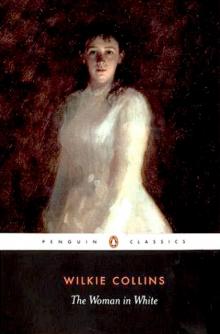 The Woman in White
The Woman in White The Queen of Hearts
The Queen of Hearts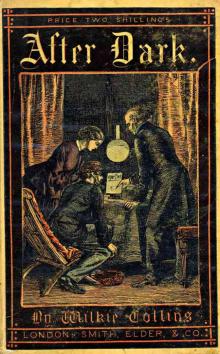 Miss Jeromette and the Clergyman
Miss Jeromette and the Clergyman Man and Wife
Man and Wife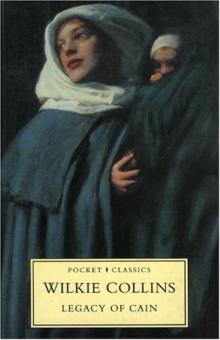 The Legacy of Cain
The Legacy of Cain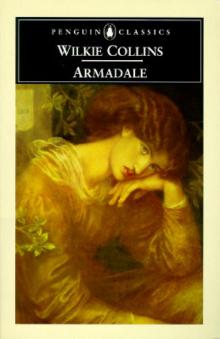 Armadale
Armadale The Frozen Deep
The Frozen Deep John Jago's Ghost or the Dead Alive
John Jago's Ghost or the Dead Alive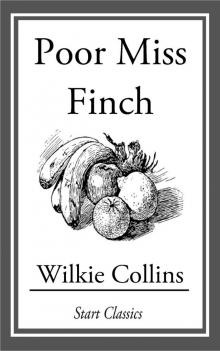 Poor Miss Finch
Poor Miss Finch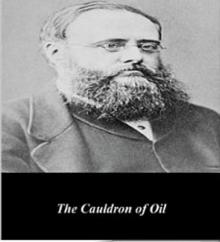 The Cauldron of Oil: A Case Worth Looking At
The Cauldron of Oil: A Case Worth Looking At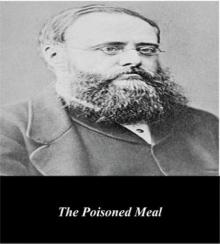 The Poisoned Meal
The Poisoned Meal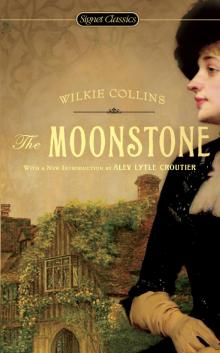 The Moonstone
The Moonstone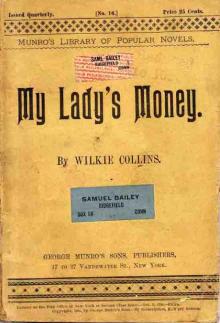 My Lady's Money
My Lady's Money Classic Ghost Stories
Classic Ghost Stories Jezebel's Daughter
Jezebel's Daughter The Devil's Spectacles
The Devil's Spectacles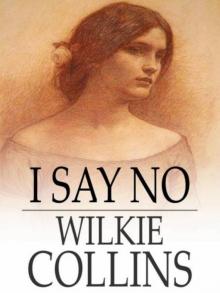 I Say No
I Say No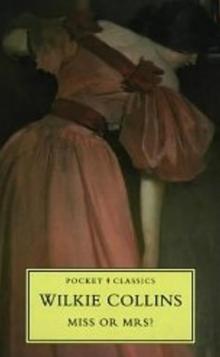 Miss or Mrs.?
Miss or Mrs.?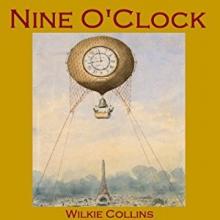 Nine O'Clock
Nine O'Clock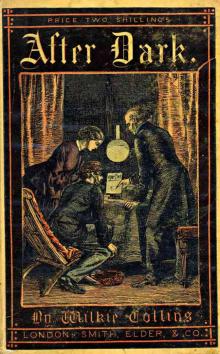 The Lawyer's Story of a Stolen Letter
The Lawyer's Story of a Stolen Letter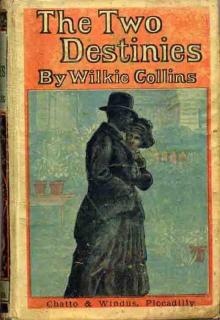 The Two Destinies
The Two Destinies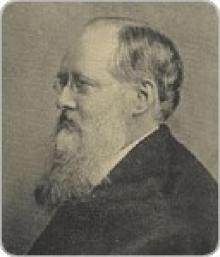 Mr. Percy and the Prophet
Mr. Percy and the Prophet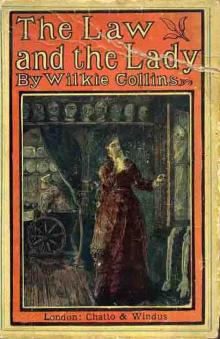 The Law and the Lady
The Law and the Lady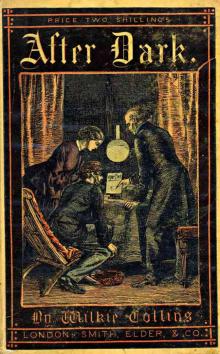 The Nun's Story of Gabriel's Marriage
The Nun's Story of Gabriel's Marriage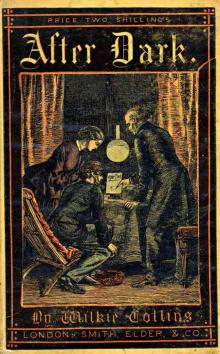 After Dark
After Dark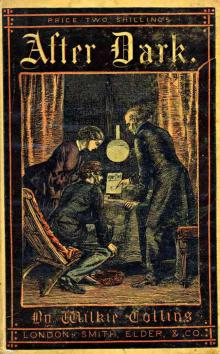 Mr. Captain and the Nymph
Mr. Captain and the Nymph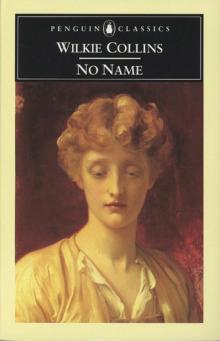 No Name
No Name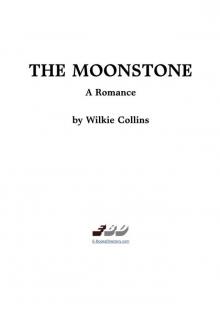 The Moonstone (Penguin Classics)
The Moonstone (Penguin Classics) Antonina
Antonina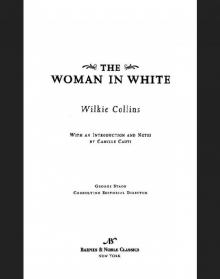 Woman in White (Barnes & Noble Classics Series)
Woman in White (Barnes & Noble Classics Series)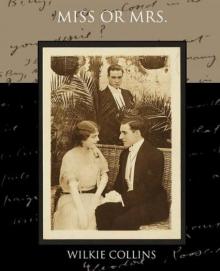 Miss or Mrs
Miss or Mrs The Dead Alive
The Dead Alive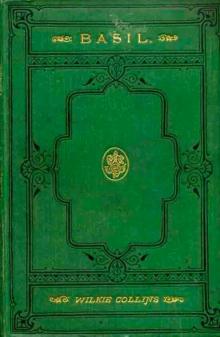 Basil
Basil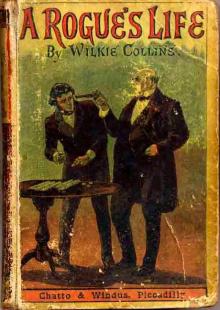 A Rogue's Life
A Rogue's Life The New Magdalen
The New Magdalen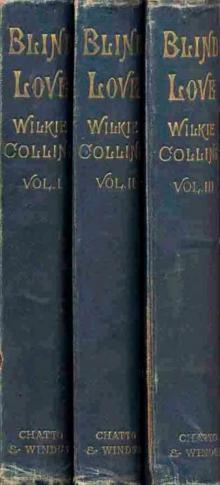 Blind Love
Blind Love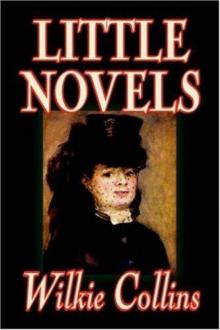 Little Novels
Little Novels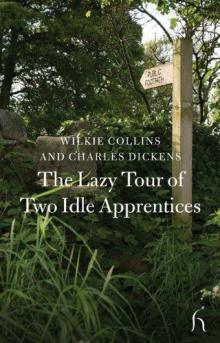 The Lazy Tour of Two Idle Apprentices
The Lazy Tour of Two Idle Apprentices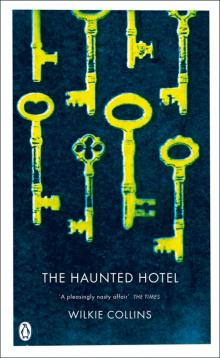 The Haunted Hotel
The Haunted Hotel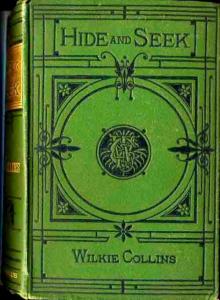 Hide and Seek
Hide and Seek